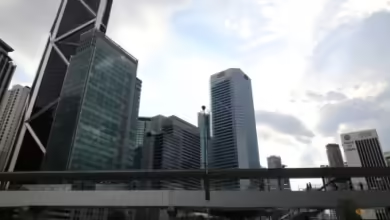Elections in Spain: Political Stability as Popular Party Fails to Win
After Sunday’s unresolved national elections left parties on the right and left without a clear route toward forming a new government, Spain looks to be heading for political deadlock. Although the conservative Popular Party prevailed in the elections, it fell short of its goals of winning by a larger margin and ousting socialist Prime Minister Pedro Sánchez.
Instead, the Alberto Nez Feijóo-led party underperformed compared to the predictions made in the majority of campaign surveys. Despite coming in second place, Sánchez’s Socialists and their affiliated parties hailed the result as a success since their united forces picked up a few more seats than the PP and the far-right. There were 172 seats in the group that would probably back Sánchez, and 170 in the group to the right of Feijóo.
Political analyst Verónica Fumanal stated, “It was a Pyrrhic victory for the Popular Party, which is unable to form a government,” adding that the conservatives will now need to appeal to the far-right, but even that won’t be enough. “I anticipate a deadlock in the Parliament.”
The unexpectedly tight result was likely to result in weeks of political squabbling and uncertainty over the nation’s next leader. Only when parliamentarians have been seated in the next Congress of Deputies will the future prime minister be put to a vote.
However, Sánchez’s prospects of obtaining the 176 votes — the absolute majority in the Madrid-based Lower House of Parliament — required to form a government are also slim. The staunchly separatist Junts (Together) party of Catalonia has emerged as Sánchez’s possible kingmaker as a consequence of the split results. If Junts demands a vote on independence for northeast Catalonia, Sánchez would probably find the price to be much too high.
After the results put her party in control, Máriam Nogueras of Junts said, “We won’t make Pedro Sánchez PM in exchange for nothing.”
PP is on course to win 136 seats with 98% of the ballots tallied. The PP would still be seven seats short of a majority even with the 33 seats that the extreme right Vox is expected to win and the one seat going to an ally party.
The Socialists are predicted to win 122 seats, an increase of 2. However, Sánchez may probably rely on the 31 seats of its minor coalition partner Sumar (Joining Forces) and a few other smaller forces to at least surpass the combined strength of the right-wing parties.
“Spain and all of the voters have expressed themselves clearly. In front of a joyous throng assembled at the Socialists’ headquarters in Madrid, Sánchez said that the retrograde group that sought to dismantle what we had accomplished had failed.
Sánchez had the option of delaying a national election until December after his party suffered defeats in regional and municipal elections in May. Instead, in an attempt to get a stronger boost from his followers, he shocked his opponents by pushing up the vote.
Sánchez may add this election night to yet another comeback in his career that has been based on defying the odds, even if this goes to a fresh vote. Before he won Spain’s lone no-confidence vote in 2018 to unseat his PP predecessor, 51-year-old Sánchez had to lead a revolt among Socialist members to take back control of his party.
But if he could, Feijóo would certainly switch places with his opponent.
As the party with the most votes in the election, Feijóo asserted his right to form a government and said he was “proud” of his party’s first win in a national election since 2016.
He addressed a gathering that was awash in Spanish flags and stated, “We have won the elections; it corresponds to us to form a government like it has always happened in Spanish democracy.”
Feijóo utilized the PP’s campaign to target what he saw as Sánchez’s lack of trustworthiness rather than what he would accomplish as prime minister. The plan did not work. The Socialists and other leftist parties seem to have instilled terror in their supporters by portraying the ultra-nationalist, anti-feminist Vox as a subordinate partner in a potential coalition with the PP.
A PP-Vox administration would have signaled a significant shift to the right for another EU member, continuing a recent trend in Sweden, Finland, and Italy. Germany and France, for example, are worried about the implications such a change might have for EU immigration and climate policy.
Vox lost 19 seats from four years before in their attempt to seize power, just as other far-right parties have in other European nations. Santiago Abascal, the head of Vox, said that the Socialists’ results were “bad news for Spaniards.”
Even though he lost the election, “Pedro Sánchez can block (Feijóo’s) investiture and, even worse, Pedro Sánchez could be invested with the support of communism, the coup-seeking separatism, and terrorism, all of whom will now have more clout in the blackmail than in his previous term,” the author said.
But it seems that the threat of the far-right entering politics for the first time since Francisco Franco’s dictatorship in the 20th century—even if only as a junior member of the PP—has been crucial to the left’s comeback.
During the election, Feijóo made an effort to separate his PP from Vox by refusing to acknowledge the prospect of a national alliance. Sánchez, however, timed the campaign to coincide with the PP and Vox signing agreements to work together in a number of town halls and regional administrations after the May elections.
Vox ran on reversing gender violence legislation, despite Feijóo’s vow to uphold his party’s commitment to combating gender violence. And they both agree that two recent laws—one protecting transgender rights, the other assisting families looking for thousands of Franco regime dead still unaccounted for in mass graves—should be repealed.
“PP has fallen prey to its own hopes, and the Socialists have been able to profit from people’s anxiety about the impending advent of Vox. Pedro Sánchez made the correct choice by moving up the elections, according to Manuel Mostaza, head of Public Policy at the Spanish consulting company Atrevia.
In a month, the new Spanish Parliament will convene. Then, King Felipe VI selects one of the party leaders to put themselves up for a vote in parliament to create a new government. The maximum amount of time that lawmakers have to come to an agreement is three months. If not, fresh elections would be called.
At the height of the summer, when millions of people were presumably on vacation and away from their usual voting booths, the election was held. However, demand for postal voting skyrocketed.
Following a month of heat waves, temperatures were anticipated to average over 35 degrees Celsius (95 degrees Fahrenheit), which is 5 to 10 degrees Celsius above average in several regions of the nation. Many of the stations received fans from the authorities.
Rosa Mara Valladolid-Prieto, a 79-year-old voter from Barcelona, stated, “We have the heat, but the freedom to cast our ballots is stronger than the heat.”







